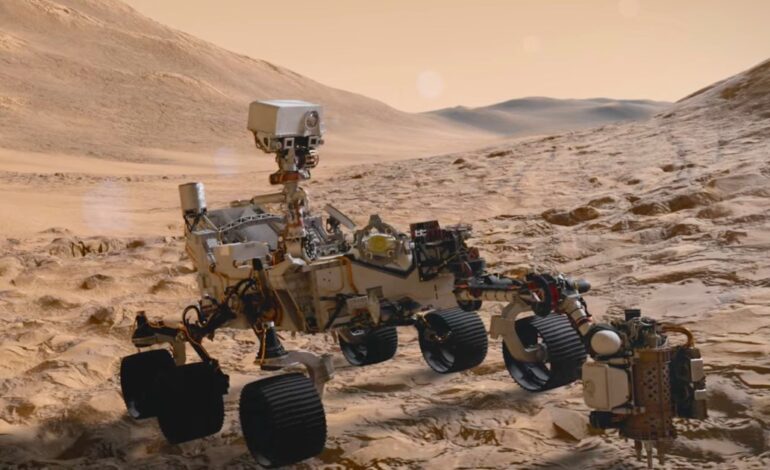NASA’s Perseverance Rover May Have Found Signs of Ancient Life

BREAKING: NASA has just announced a groundbreaking discovery: the Perseverance rover may have found evidence of ancient microbial life on Mars. This potential breakthrough comes from a rock sample taken from Cheyava Falls, located in the Jezero Crater’s dry riverbed, last year.
The sample, dubbed Sapphire Canyon, might contain biosignatures, according to a paper published in the prestigious journal Nature on Wednesday. High-resolution images later revealed distinct mineral patterns resembling “leopard spots,” which NASA describes as reaction fronts—areas where chemical and physical reactions take place.
NASA officials state that the spots exhibit signatures of two iron-rich minerals: vivianite, a hydrated iron phosphate, and greigite, an iron sulfide. These minerals are commonly found on Earth in sediments and decaying organic matter. NASA pointed out that while these findings could indicate microbial life, there are also non-biological processes that could produce similar results, including high temperatures and acidic conditions.
Remarkably, the rocks at Bright Angel show no signs of having experienced high temperatures or acidity, raising the tantalizing possibility that Mars could have supported life longer than previously thought. NASA Administrator Sean Duffy emphasized the significance of this discovery, stating, “The identification of a potential biosignature on the red planet is a groundbreaking discovery, and one that will advance our understanding of Mars.”
In a bid to further explore this potential finding, Nicky Fox, Associate Administrator for NASA’s Science Mission Directorate, confirmed that the agency will share this data with the scientific community to validate or challenge its biological implications.
Since landing on Mars in February 2021, Perseverance has been actively using its advanced science instruments to analyze rock samples in the quest for ancient microbial life. The next phase involves a future NASA mission designed to retrieve these samples and return them to Earth for in-depth laboratory analysis.
Understanding whether life ever existed on Mars could revolutionize our knowledge of life’s origins and evolution, as well as how habitable environments develop on planets like Earth. This discovery may also inform our search for life across the universe.
Stay tuned for updates as this story develops, as the implications of these findings could reshape our understanding of life beyond Earth.






